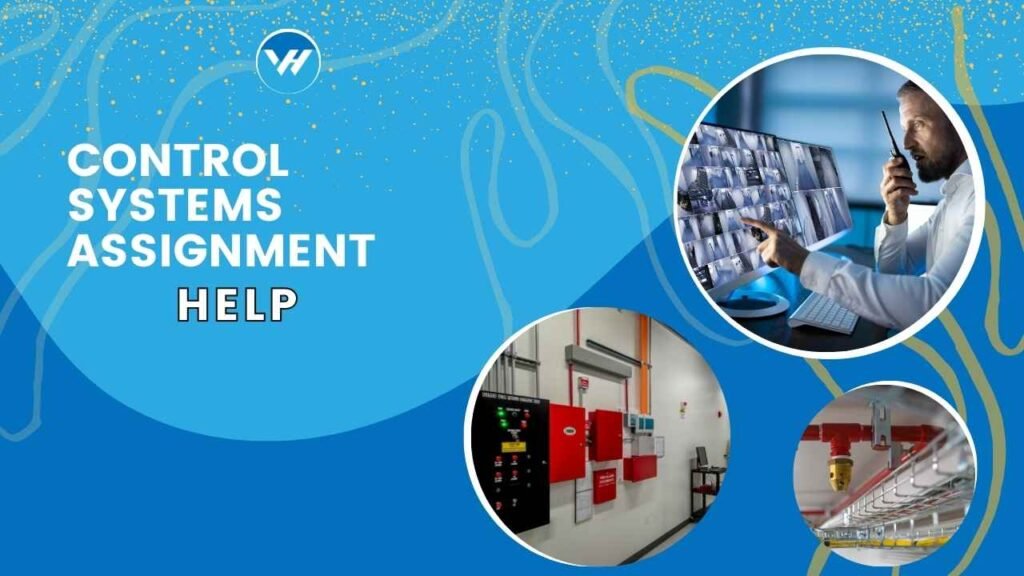Control systems are the backbone of modern engineering, playing a crucial role in everything from automated manufacturing processes to sophisticated flight control systems. Understanding control systems is not just essential for engineers but also for students who are gearing up to enter the field. If you’re struggling with your control systems assignments, you’re not alone. This guide will help you understand control systems better and provide tips on how to tackle your assignments effectively.

Table of Contents
ToggleUnderstanding Control Systems
Basic Concepts in Control Systems
Control systems are designed to manage and regulate the behavior of dynamic systems. At the core of control systems are two fundamental types: open-loop and closed-loop systems.
Open-Loop vs. Closed-Loop Systems
An open-loop system operates without feedback. It follows a predetermined set of instructions regardless of the outcome. For example, a washing machine that runs through a cycle without adjusting based on the cleanliness of clothes is an open-loop system.
In contrast, closed-loop systems use feedback to make adjustments. Think of a thermostat in your home. It monitors the temperature and adjusts the heating or cooling to maintain the desired temperature. This feedback mechanism helps in achieving more precise control.
Key Components: Sensors, Controllers, and Actuators
- Sensors: Measure the output of the system and provide data for control decisions.
- Controllers: Use the data from sensors to determine the appropriate action.
- Actuators: Execute the control actions to modify the system’s output.
Types of Control Systems
Linear vs. Nonlinear Systems
Linear systems follow the principle of superposition, meaning that the output is directly proportional to the input. Nonlinear systems, however, do not follow this principle, making them more complex and challenging to analyze.
Time-Variant vs. Time-Invariant Systems
Time-variant systems change their behavior over time, while time-invariant systems have consistent characteristics. Understanding these types helps in selecting the appropriate control strategies and tools.
Challenges in Control Systems Assignments
Common Problems Students Face
Students often encounter several challenges when dealing with control systems assignments:
Mathematical Complexities
Control systems assignments frequently involve complex mathematical concepts such as differential equations and Laplace transforms. These mathematical tools are crucial for modeling and analyzing systems but can be intimidating for students.
Understanding System Dynamics
Grasping how different components of a control system interact and how they influence the overall system behavior can be challenging. It requires a deep understanding of system dynamics and control theory.
Why Students Seek Help
Given the complexity of control systems, many students seek help to better understand the concepts and solve their assignments accurately. Seeking assistance can provide clarity, save time, and improve overall grades.
How to Approach Control Systems Assignments
Step-by-Step Methodology
When tackling control systems assignments, following a structured approach can make the process more manageable:
Defining the Problem
Start by clearly defining the problem or objective of the assignment. Understand the requirements and constraints of the system you are analyzing or designing.
Modeling the System
Create a mathematical model of the system using appropriate techniques. This often involves formulating differential equations that describe the system’s dynamics.
Designing the Controller
Based on the system model, design a controller that can regulate the system’s behavior to meet the desired specifications. This might involve using techniques such as PID control, state-space representation, or optimal control.
Simulating the System
Use simulation tools to test and validate your controller design. Simulations help in visualizing how the system responds to various inputs and disturbances.
Tools and Software for Control Systems
MATLAB/Simulink
MATLAB and Simulink are powerful tools for modeling, analyzing, and designing control systems. They provide a user-friendly interface and extensive libraries for control system design and simulation.
Python Control Systems Library
For those who prefer open-source tools, Python offers libraries like control for control system analysis and design. Python’s flexibility and extensive ecosystem make it a popular choice among engineers.
LabVIEW
LabVIEW is another widely used tool for control systems, particularly in industrial applications. It offers a graphical programming environment that simplifies the development of control systems.
Tips for Solving Control Systems Problems
Break Down the Problem
Approach complex problems by breaking them into smaller, manageable parts. This can help in understanding each component’s role and how they interact within the system.
Use Simulation Tools
Simulation tools can help in testing your control strategies and understanding system behavior. They provide a virtual environment to experiment with different scenarios.
Refer to Textbooks and Online Resources
Don’t hesitate to refer to textbooks and online resources for additional explanations and examples. These resources can offer different perspectives and insights into complex topics.
Seek Help from Experts
If you’re struggling with certain aspects of your assignment, seeking help from experts can be invaluable. Tutors and online platforms like Virtual Help can provide guidance and support.
Virtual Help for Control Systems Assignments
What is Virtual Help?
Virtual Help is a service provider with an iOS and Android app that connects students with tutors for assignment help. It offers a platform where students can find expert assistance for their academic needs.
How Virtual Help Can Assist with Control Systems Assignments
Access to Tutors
With Virtual Help, you can connect with experienced tutors who specialize in control systems. They can provide personalized guidance and help you understand complex concepts.
Assignment Assistance
Virtual Help offers assistance with specific assignments, helping you work through problems step-by-step and ensuring you grasp the underlying principles.
Real-Time Support
The platform provides real-time support, allowing you to get help when you need it most. Whether you have a quick question or need in-depth assistance, Virtual Help is there to support you.
Benefits of Using Virtual Help
Using Virtual Help offers several benefits, including personalized support, access to expert tutors, and the convenience of getting help through an app. It’s a valuable resource for students who want to improve their understanding and performance in control systems.
Conclusion
Understanding and working with control systems can be challenging, but with the right approach and resources, you can master the subject. By breaking down problems, using simulation tools, and seeking help from experts, you can overcome the difficulties and excel in your assignments. Virtual Help is an excellent resource for those who need additional support and guidance. Don’t hesitate to leverage these tools and resources to enhance your learning experience and achieve academic success.
FAQs
What are the main challenges in control systems assignments?
The main challenges include mathematical complexities, understanding system dynamics, and applying appropriate control strategies.
How can simulation tools help with control systems problems?
Simulation tools help visualize system behavior, test control strategies, and validate designs, making it easier to understand and solve problems.
What is the role of MATLAB in control systems?
MATLAB is used for modeling, analyzing, and designing control systems. It provides a comprehensive environment for simulation and control system design.
How can Virtual Help assist with complex control systems topics?
Help offers access to expert tutors, personalized assignment assistance, and real-time support to help students with complex control systems topics.
Why should I consider using an online platform for assignment help?
Online platforms provide convenient access to expert help, personalized support, and resources that can enhance your understanding and performance in assignments.





